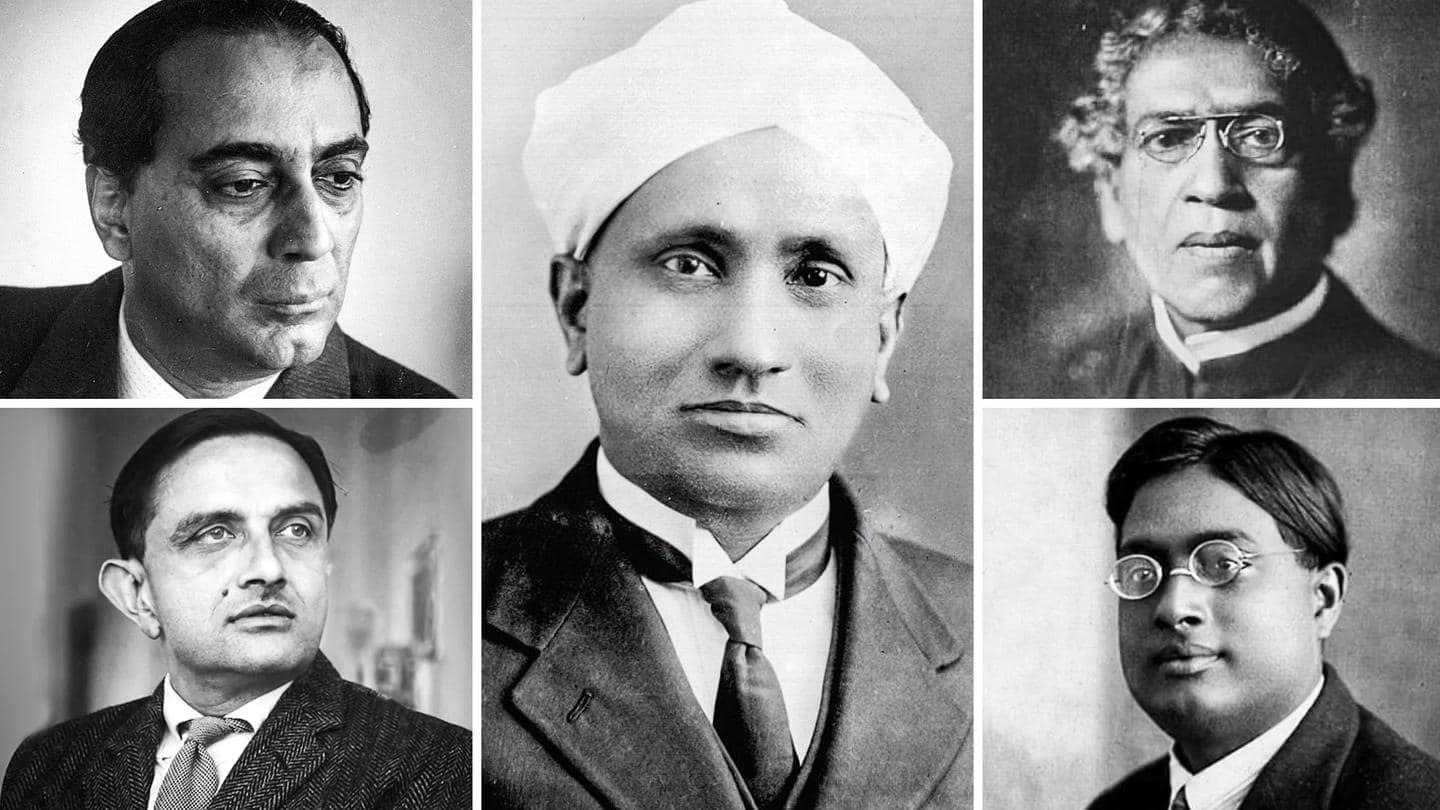
National Science Day: Remembering 5 legendary Indian scientists
What's the story
National Science Day is commemorated every year on February 28 to mark the discovery of the Raman Effect. The day is noted to encourage our youth to develop an interest in science. Every year the day is celebrated with a theme, this year's theme being: "Integrated Approach in Science and Technology for a Sustainable Future." Let's read about some legendary scientists India had birthed.
#1
Jagadish Chandra Bose (1858-1937)
Jagadish Chandra Bose was the first to prove that plants are living beings in 1901 and also that plants have feelings. Bose studied the pulse beat of plants which became unsteady when inserted in poison. He established the study of radio and microwave optics. The Institute of Electrical and Electronics Engineers entitled him as one of the fathers of radio science.
#2
CV Raman (1888-1970)
Chandrasekhara Venkata Raman's groundbreaking work on the scattering of light won him the Nobel Prize for Physics in 1930. The first Asian and first non-White to receive any Nobel Prize in science, Raman discovered that when light crosses a transparent material, some of the deflected light changes in wavelength. This phenomenon, the result of the Raman effect, is called the Raman scattering.
#3
Homi J Bhabha (1909-1966)
Known as the "Father of the Indian nuclear program," Bhabha convinced the Congress Party's senior leaders to start the ambitious nuclear program. Instead of manufacturing atomic bombs, he suggested that the production of an atomic reactor should be used to counter the misery and poverty of our country. Homi Bhabha was awarded the Adams Prize in 1942 and the Padma Bhushan in 1954.
#4
Vikram Sarabhai (1919-1971)
The Father of India's space program, Vikram Sarabhai played a crucial role in setting up ISRO by convincing the Indian government that a space program was important for a developing nation. He was also the force behind the establishment of the Indian Institute of Management, Ahmedabad, and the Nehru Foundation for Development. He won Padma Bhushan in 1966 and the Padma Vubhushan in 1972.
#5
Satyendra Nath Bose (1894 -1974)
The Indian physicist specializing in quantum mechanics is mostly remembered for his role in characterizing the particles "bosons" that were named after him. He developed the foundation for Bose-Einstein statistics in collaboration with Albert Einstein. Bose was awarded the Padma Vibhushan, India's second-highest civilian award, in 1954. Rabindranath Tagore dedicated his only book on science, Visva-Parichay, to Bose in 1937.